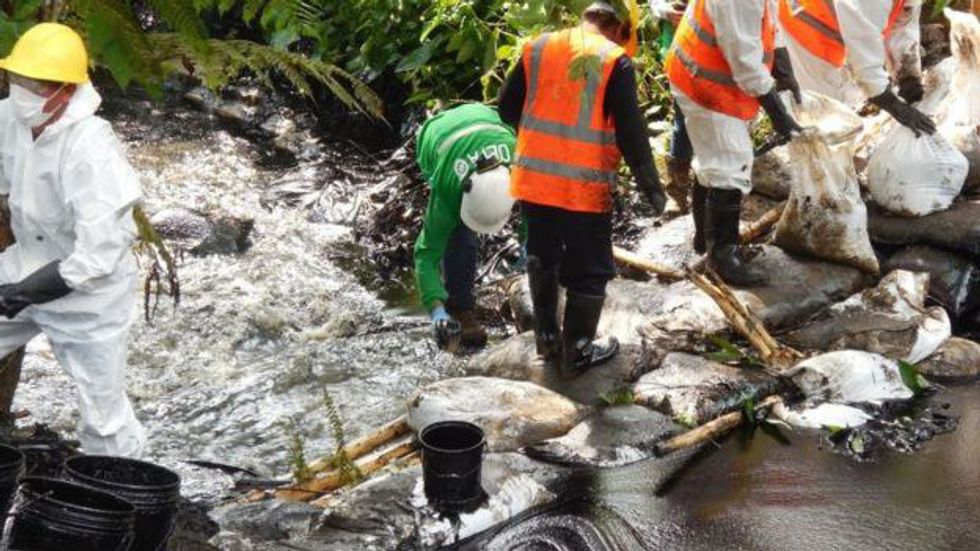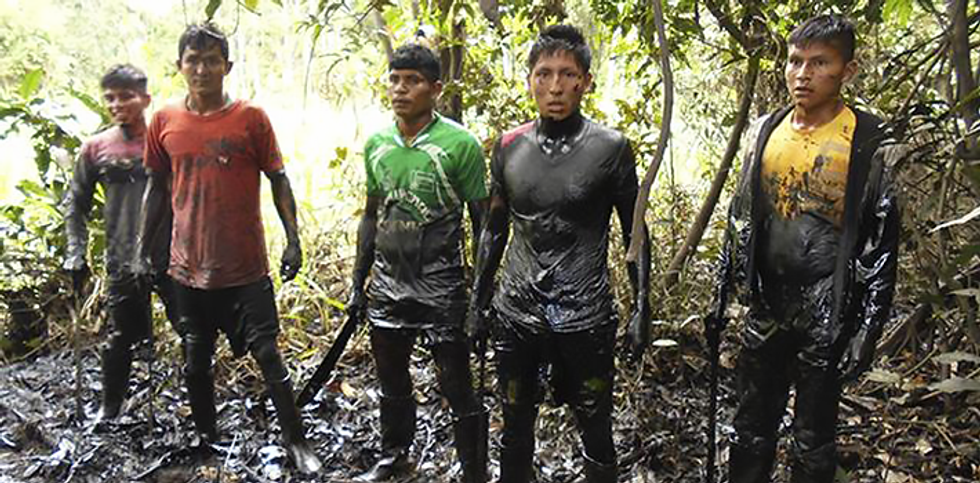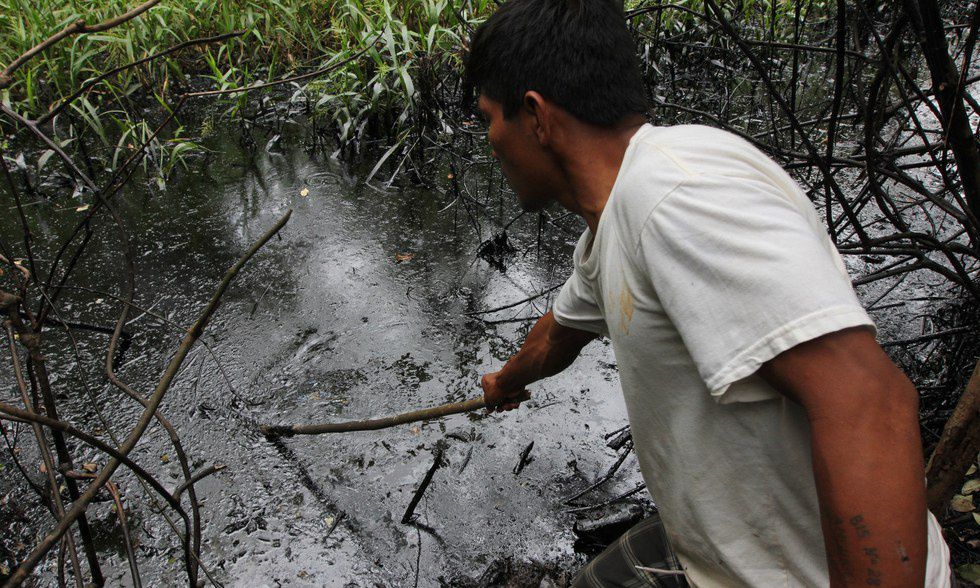The Peruvian government has declared a state of emergency due to an oil spill that occurred in February. This was due to a leakage from Peru's primary pipeline built in the 1970s. The oil has begun to pollute two Amazonian rivers on which native villages rely. Three thousand barrels of crude oil have now spilled into the region. Petroperu, the state-owned company, has taken responsibility in a full clean-up and is providing food and water to those affected by the crisis. However, cleanup has been hindered by the heavy amounts of rain the region experiences. The disruption in the pipeline was likely caused by a landslide.
Water quality emergencies have been called in five districts so far. The company could face nearly 60 million soles ($17 million) in fines if the spill affects the health of the people in these areas. The OEFA, the governmental environmental agency of Peru, has mandated for Petroperu to keep better maintenance and replace the outdated parts of the pipeline. OEFA also stated that this is not an "isolated situation," that similar spills have occurred due to "defects in the pipeline."
Buckets and bags of sludge and oil are being removed from the forest and the rivers. The president of Petroperu faced claims that the company may have paid children to help in the cleanup effort. He denied these claims, but has fired four company officials, presumably including one who may have actually paid children for such a reason.
However, oil spills have been threatening the Amazon and its indigenous people since late June of 2014. It has gone largely unnoticed by the media and environmental groups. Nevertheless, Peruvians notice it quite well. They have begun to get sick: headaches, nose bleeds, nausea and stomach aches. The government had then promised to move from oil and to renewable energy by 60% by 2025. Between June and December of 2015, five more oil spills have occurred. One villager said, "I never knew what crude oil was, and then suddenly we saw it floating down the river."
"We can’t go on living here. They say the oil will last for 30 or 40 years. We can’t eat the fish any more, so what will we live on for all those years?"
From the BP oil spill, to the Porter Ranch gas leak, to the Flint Water Crisis, to the Peru oil spill, one sees environmental negligence all over. This exhibits the apathy in taking care of the environment by businesses and governments. However, it also shows the effects of such environmental crises.on our environment and our own health. Hopefully, one day, we will correct our behavior and preserve our earth before it is too late.






















